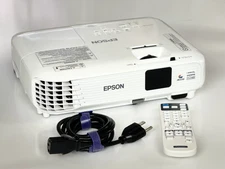How to build a projector screen
As the name suggests, a projector screen is a screen meant
for use with a projector. These screens can be bought or handmade, and they
come in three sizes:
1) Fixed Frame Screens – Fixed frame screens are also known
as projection screens. They are mounted to a wall and have locked joints that
secure them into place. This type of screen is ideal for projectors because the
surface area of the fixed frame can be adjusted from 90-180 degrees. The fixed
frame can also be adjusted up and down to make sure the projected image is even
across the entire surface area of the fixed frame projection screen.
2) Roll Down Screens – Roll down screens are also called
pull down screens or retractable projection screens. Unlike fixed frame
screens, these screens are not attached to the wall but are lowered or rolled
down from the ceiling. They can also be raised or retracted depending on
whether you want to project only from the top of the screen or a full
180-degree vertical picture. These types of screens are ideal for home theaters
since they can be rolled up and hidden after you have finished viewing a movie.
3) Anything goes – if you don't want a fixed frame screen
and you don't have a ceiling mounted projector, then what? You just make one! A
projector screen made from any type of fabric is called an extended projection
screen and is an alternative to having a fixed frame print with no projected
image on the front side. The extended projection screen can be hung in front of
a window when the projector is being used, or it can be hung behind white
sheets on a wall. Anything goes as long as it is attached to something sturdy,
and the image is projected right in the middle. This can be anything from an
old sheet to a large piece of white paper, but you have to remember that with
these types of screens you may need additional lighting.
The second type of projector screen are pull down screens,
which are also sometimes called drop down screens. Some people will call them
roll down screens or drop down screens if they want to distinguish between
fixed frame and pull down projectors. These pull down screens are usually very
lightweight and are pulled down from the ceiling. They can be adjusted for
height if necessary, and they come in a variety of sizes to match your needs.
The third type of projector screen is made of any type of
material. This could be fabric, but it could also be a white sheet or even
cardboard. The only requirement is that the image being projected falls
directly in the middle of the screen with no blank spots on either side. This
set-up is ideal for people who have limited options because they may not have a
room large enough to accommodate a fixed frame or pull down screen. This is why
it is called an extended projection screen. Any type of material can be turned
into an extended projection screen as long as the projector image falls in the
middle.
Projector screens come in a variety of sizes and shapes, but
they all serve the same purpose: to project movies, television shows and
sporting events onto a surface that can be viewed by everyone in attendance.
The average pull down screen will cover a surface area of 100 square feet
easily, but there are larger drop down screens that can cover up to 300 square
feet or more. Fixed frame screens are attached to the wall, and they are ideal
for anyone who plans on using their projector regularly since these screens do
not take up any additional space during use or storage.






Comments
Post a Comment